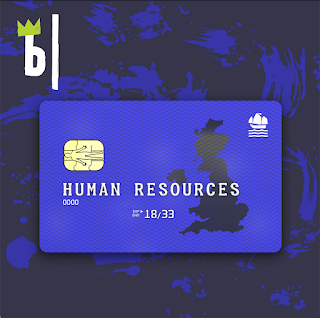The Human Resources podcast defines its mission as "Exploring the true story of British involvement in the transatlantic slave trade and how it touches every part of the nation."
That's an admirable -- if not seriously overdue -- one. Sadly, in the U.S. a sizable contingent of its white citizens view an accurate retelling of the shame of slavery as a narrative that makes them "feel bad" and as such, is to be avoided and expunged from the history books.
Thankfully, Broccoli Productions’ critically acclaimed slavery podcast Human Resources which was first launched in 2021has now returned for its third season. The podcast is hosted by political journalist and Novara
Media contributing editor Moya Lothian McLean. As the host, McLean offers listeners a unique perspective on the perpetuation of the slave trade. She is a descendant of black slaves and white slave owners. Imagine that holiday dinner.
As a host, McLean excels, throttling lectures in favor of historical perspective and the connections between the slave trade and the upper crust of English society. As I listened to the first two seasons, it became abundantly clear that profits and greed overwhelmed any trepidation in English businesses about their machinations in the Transatlantic slave trade.
In the first season -- June 2021 -- an episode details the history of the Greene King pub chain in England. The family business had deep ties to the slave trade hundreds of years ago. Today, the family pub chain now supports several causes that promote racial equality and expose the sordid past of the slave trade.
In a January 2022 episode, McLean details how the much cherished British railway system was financed, in large part, by profits derived by the Transatlantic slave trade.
In perhaps its most riveting and disturbing episode in late May 2021, McLean and her two guests -- Dr. Madge Dresser and Dr. Sami Pinarbas -- weave a narrative of how the British upper class -- including Sir Robert Peel Jr, who served twice as the British Prime Minister in the early 19th century -- were directly linked to the slave trade.
The
10-episode weekly series focuses its just launched third season on the period in which slavery was abolished
in Britain, in 1807, and what happened after.
“[We’re] kicking off season three with 'Inventing Race', which examines how the British transatlantic slave trade created conceptions of race that still dog us today - and have even been adopted by those they marginalize,” McLean tweeted.
Previous seasons of the podcast have explored how the transatlantic slave trade impacted modern Britain by diving into the history of the British monarchy, the original Great Western Railway, Scotland’s slaving history, and more.
The
podcast has also featured appearances from a number of contributing
experts, including early modern Britain historian and professor Brooke
Newman and Sheffield Environmental Movement founder and journalist
Maxwell Ayamba, among others. It's not surprising that the Human Resources podcast has received numerous accolades.
Other shows that Broccoli has produced include We Were Always Here with activist Marc Thompson on the lives of people that were affected by the UK HIV epidemic, and documentary podcast The Stitch Up on the damaging effects of the fashion industry.
This U.K. podcast that does not hold back in exposing how the tentacles of the Transatlantic slave trade hooked themselves in the core of the British Empire, from scientists to railway executives, and from nobility to businesses.
It's a podcast that's been tried here with the 1619 Project, which was attacked by conservative media and politicians. The 1619 Project, named for the date of the first arrival of Africans on American soil, sought to place “the consequences of slavery and the contributions of black Americans at the very center of our national narrative.”
Was America founded as a slavocracy, and are current racial inequities the natural outgrowth of that? Americans who answer yes wish to explore the past so that we can reshape the future. Americans who deny that grim reality wish to isolate themselves in patriotism on steroids, ignoring all that does not conform to their view that we are a nation conceived in liberty, and dismissing any inconsistencies that challenge its founding principles?
Listen to the Human Resources podcast.

Comments
Post a Comment
Thank You for your input and feedback. If you requested a response, we will do so as soon as possible.